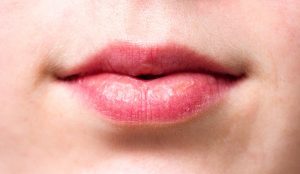Among the various symptoms that diabetes can cause in the human body, some are still unknown or easily confused with other natural bodily factors. One of these symptoms is dry mouth, which can occur due to increased blood sugar levels or even as a side effect of medications used to treat diabetes, but it can also be caused by factors unrelated to the disease itself, such as sleeping with your mouth open, smoking, or lack of hydration. Therefore, we can affirm that dry mouth is not always a sign of diabetes, but it is a symptom that should be investigated.
What is Dry Mouth (Xerostomia)?
Dry mouth, also known as xerostomia in medical terms, is the literal feeling of dryness caused by lack of saliva. Saliva plays an important role in the process of digesting food; it helps wash food particles and bacteria off the teeth and neutralizes mouth acids, preventing gum disease and tooth decay. Dry mouth can lead to several other problems such as fungal infections (oral thrush), infections in the salivary glands, some mouth lesions, and sensitivity/irritation at the corners of the mouth, causing very uncomfortable sores. 
How to Improve the Feeling of Dry Mouth?
Ideally, everyone should take preventive measures, but if it is already happening, the best thing to do is find out the cause. If you use medications for diabetes treatment, inform your endocrinologist so they can change the substance or adjust the dose to observe the results. If the cause is constantly elevated blood glucose levels, strictly monitoring and maintaining your blood sugar under control by paying attention to your diet can provide quick results. Remember that diabetes treatment goes far beyond taking medications and controlling food intake and portion sizes. For successful treatment and controlled blood glucose levels, you must follow a specific diet, use medication as prescribed by your doctor, practice physical activity, and follow any other recommendations your specialist may give for your specific situation. Boosting hydration, making sure to drink plenty of water throughout the day, is also an excellent way to reduce the feeling of dry mouth. If you have difficulty drinking the recommended amount of water (2 liters per day), a tip is to take small sips throughout the day, keeping a fresh water bottle nearby, which helps a lot. Avoiding salty or very sweet foods also helps control hydration.
IMPORTANT: One way to keep saliva production active is to chew sugar-free gum or suck on sugar-free candies.
If none of these tips work, talk to your doctor about stimulating saliva production with mouthwashes or Salagen. There is also the option of artificial saliva, available in spray or liquid forms, which can be found at pharmacies and drugstores. Oral care is essential for those who suffer from dry mouth. Brush your teeth at least 3 times a day after meals and use dental floss at least once a day.
Main Causes of Dry Mouth (Xerostomia)
In addition to the causes mentioned above, such as diabetes and medications used for diabetes treatment, dry mouth can be associated with several other factors, including: the use of high blood pressure medications, decongestants, some analgesics, diuretics, and some antidepressants can also cause this side effect. For this reason, it is always recommended to talk to your doctor to evaluate the situation and, if necessary, change the substance used or adjust the dosage to see improvements. Women going through menopause can also experience dry mouth, as hormonal imbalances can alter and affect the functioning of the salivary glands. Cancer patients undergoing radiotherapy and chemotherapy may also have dry mouth as a symptom.
How to Identify Dryness in the Mouth?
When we talk about dry mouth, we automatically think of thirst, but the symptoms go beyond that sensation and start to show more evident signs such as frequent bad breath, sticky feeling in the mouth, metallic taste, and even some difficulty chewing. Lips may become dry, cracked, and you may feel a dry throat.
Symptoms of Diabetes
As we have already explained about the possibility of dry mouth being considered a sign of diabetes, let’s list the main symptoms of diabetes that should be considered so that you seek medical care. Diabetes is a metabolic syndrome with multiple origins characterized by a lack of insulin or the body’s inability to produce insulin, which is the responsibility of the pancreas. Because of this inability, blood glucose (sugar) levels rise and cause characteristic symptoms, and can put the patient at serious health—and life—risks, since insulin is responsible for controlling these glycemic levels. The main symptoms of diabetes include:
- Frequent urge to urinate;
- Increased appetite;
- Excessive thirst;
- Rapid weight loss;
- Vision changes
These symptoms occur because of insufficient insulin production in the body and, with rising blood glucose, the body starts to react and display these signs. But it is important to note that diabetes is divided into different types and thus, symptoms can also vary. For example, in type 2 diabetes, the disease is considered asymptomatic so the patient may have it for many years without noticing symptoms. This type can affect anyone at any age. It is usually caused by poor eating habits along with a sedentary and unhealthy lifestyle or a family history of diabetes. Type 1 diabetes, which is the rarest type of the disease, is linked to genetic inheritance together with viral infections, so it can manifest at any age, being more common in children and young people. In this case, symptoms are more noticeable, such as weakness, constant fatigue, sudden mood swings, nausea, vomiting, nervousness, in addition to all the symptoms mentioned above. If you notice these changes, it is recommended to see a doctor quickly for an evaluation and to start appropriate treatment. See also: Diabetes: Main Causes, Symptoms, and Treatments Photo: Anemone











